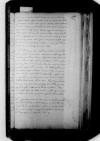Letter #5762
Alfonso de VALDÉS to Ioannes DANTISCUS[Granada?], [1526-09-18 — 1526-12-16?]
English register:
Valdés jokingly complains to Dantiscus that he has been flooded with letters because of Dantiscus’ Pasquillus. He warns he will refer bothersome correspondents straight to him. He sends Dantiscus a letter about Pasquillus he received from a Spanish noble, a relative of the infantry commander, author of Talichristia [Álvar Gómez de Ciudad Real]. Valdés offers the opinion that for a Spaniard, Gómez is quite well educated and he asks Dantiscus to reply to Gómez’ letter in his name. He asks him to make haste because the messenger is leaving that evening.
Manuscript sources:
Auxiliary sources:
Prints:
| ||||||||||||||||||||
Text & apparatus & commentary Plain text Text & commentary Text & apparatus
Salutem plurimam.
Viden, quam mihi tragoediam excitaris cum tuo Pasquillo? Volitavit ille per totam
ms 1 2 autem⌈nuncprint 1 nunc,
ms 1 2 autem⌉ erit pro me patronum agere, quod si praestiteris, et mihi rem
gratissimam facies et te ab invidia liberabis. Sin minus, omnes,
quotquot venerint, ad te remittam. Est
ms 1 2 domini⌈duciprint 1 duci,
ms 1 2 domini⌉ del print 1 infantazgo,
ms 1 2 infantadgo⌈infantazgoprint 1 infantazgo,
ms 1 2 infantadgo⌉
ms 1 2 tuum⌈nuncprint 1 nunc,
ms 1 2 tuum⌉ Pasquillum apud me diversari, hanc, quam vides, epistolam ad me
dedit, quam hac lege ad te mitto, ut meo nomine ad print 1 eam,
ms 1 2 eum⌈eamprint 1 eam,
ms 1 2 eum⌉ respondeas.
Vale.
Postscript:
Vides, quid
Iterum vale.
print 1 Tuus Valdesius,
ms 1 2 omitted⌈Tuus
ms 1 2 omitted⌉

 BK 222, No. 47, p. 188
BK 222, No. 47, p. 188